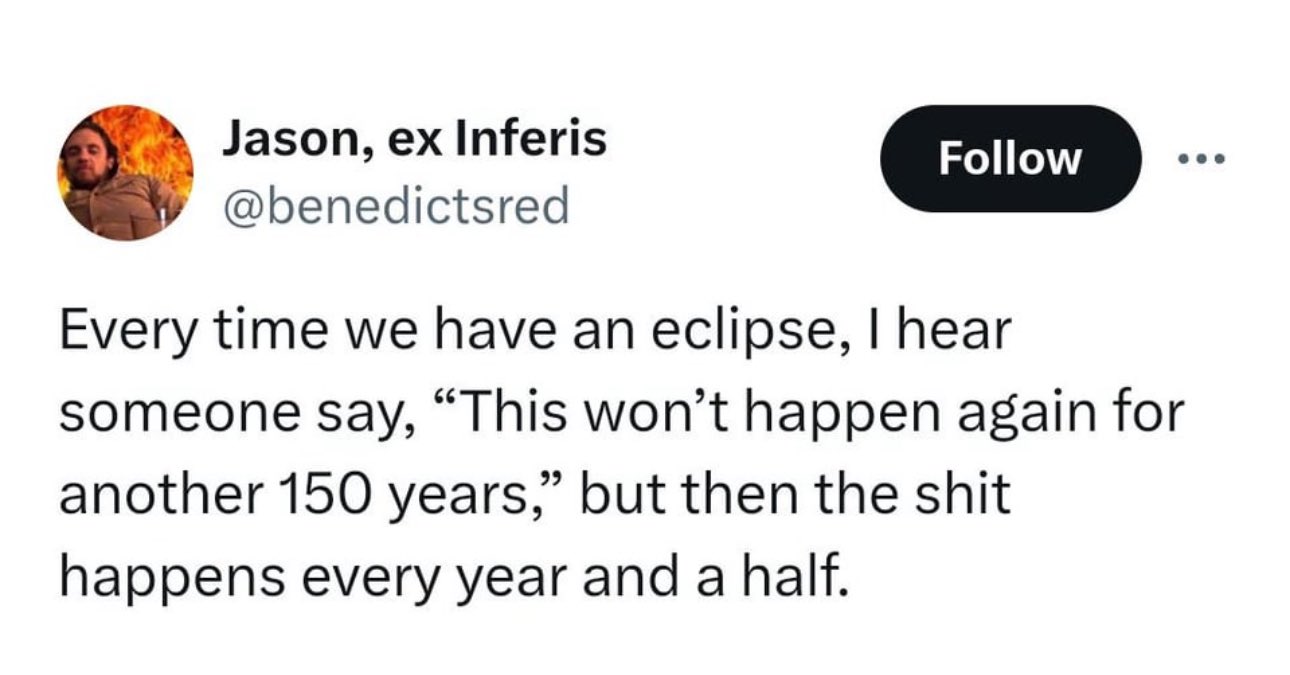this post was submitted on 07 Apr 2024
779 points (94.2% liked)
People Twitter
5826 readers
2390 users here now
People tweeting stuff. We allow tweets from anyone.
RULES:
- Mark NSFW content.
- No doxxing people.
- Must be a pic of the tweet or similar. No direct links to the tweet.
- No bullying or international politcs
- Be excellent to each other.
- Provide an archived link to the tweet (or similar) being shown if it's a major figure or a politician.
founded 2 years ago
MODERATORS
you are viewing a single comment's thread
view the rest of the comments
view the rest of the comments

If you have a space ship, you don't even have to wait for them to hit Earth. There's constantly total eclipses from each of the planets and moons. I'm very curious what a total eclipse from a body with an atmosphere would look like.
What do you mean? Isn't Earth a body with an atmosphere? Also, I get your point, but boats are a lot more accessible than spacecraft.
I mean where the eclisping body has an atmosphere. The moon is a solid body with hard edges. It can give total eclipses, annular eclipses (where the entire moon is surrounded by the sun but it doesn't block the whole thing because it's farther from the Earth), and partial eclipses (where they overlap but aren't entirely on top of each other).
Earth would make a different kind of shadow where there would be other variations depending on whether the planet itself and/or the atmosphere are fully or partially covering the sun.
And then there's Jupiter, where the atmosphere is much larger than the rocky core and the pressure is high enough that it's not very well defined where the atmosphere transitions from gas to liquid to solid, which would probably give a different effect for eclipses. Though that depends on how opaque or transparent it is, also the sun's apparent size would be smaller, so it might be kinda underwhelming.